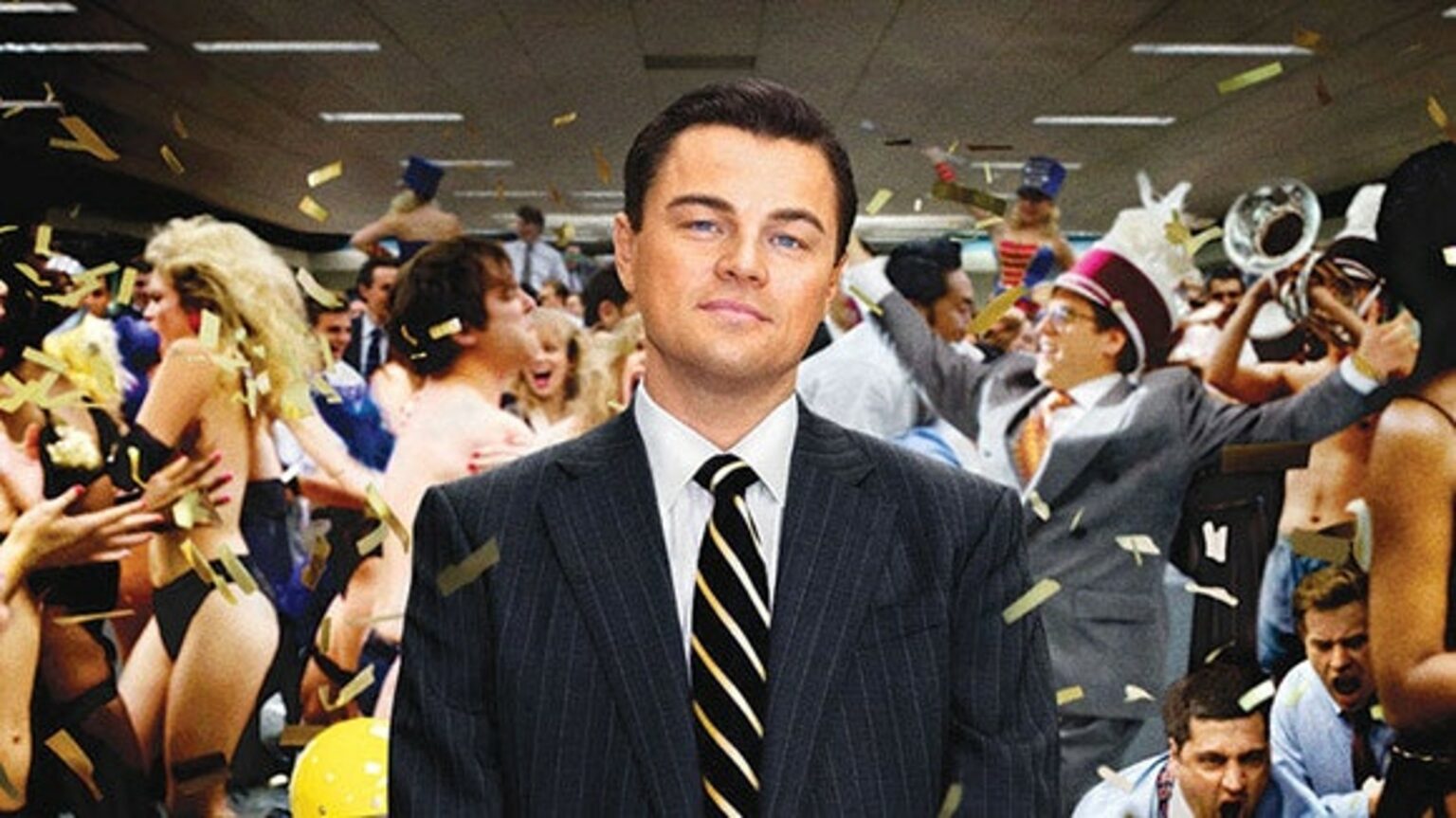There are several great movies centered around the stock market and finance that provide both entertainment and insights into the world of trading and investing. These movies offer a range of perspectives on the stock market and the financial industry, from dramatic portrayals of real events to comedic takes on the world of trading and investment. Keep in mind that the accuracy and realism of some of these films can vary, so it’s a good idea to approach them with a critical mindset.
Here are some of the best finance and stock market-based movies directly from Wall Street:
5. Boiler Room
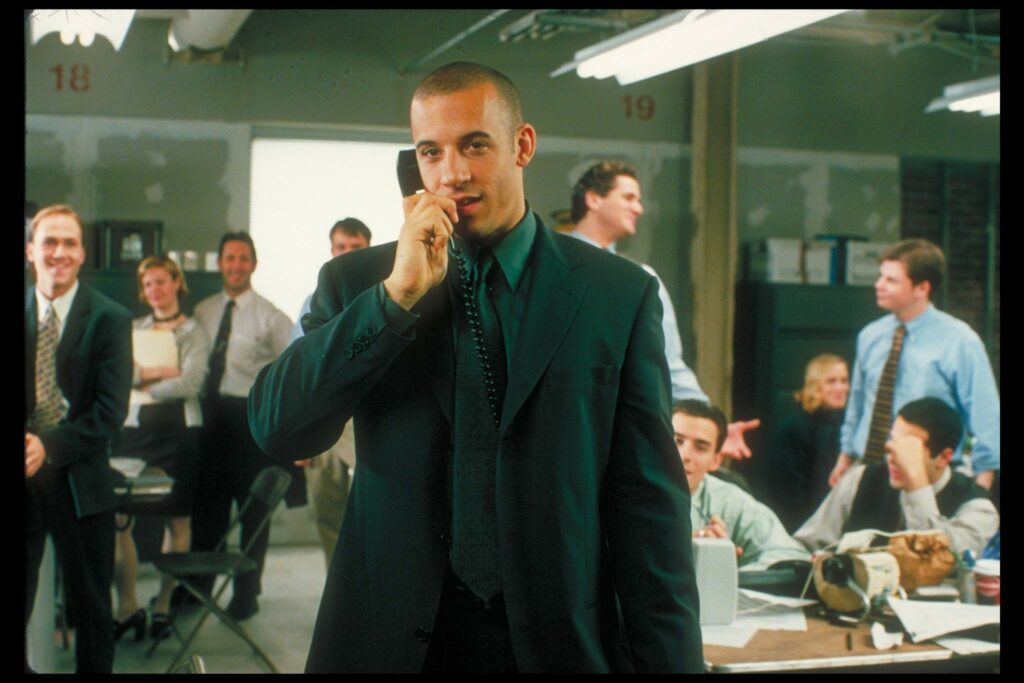
“Boiler Room” is a drama film released in 2000, directed by Ben Younger. The story revolves around Seth Davis, a young and ambitious college dropout who is looking for a way to make quick money. He joins a seemingly legitimate brokerage firm called J.T. Marlin, which promises high earnings and a glamorous lifestyle to its employees.
As Seth becomes more deeply involved in the world of the firm, he discovers that J.T. Marlin is actually engaged in illegal and unethical activities. The company uses high-pressure sales tactics to persuade investors to buy fraudulent or overpriced stocks, essentially scamming them out of their money. While the employees enjoy lavish lifestyles, they are complicit in deceiving their clients.
Seth is initially enticed by the money and lifestyle he gains from his work, but he begins to feel conflicted about the moral implications of his actions. He starts to question the ethics of the company’s practices and the impact they have on people’s lives. As he delves deeper into the firm’s operations, Seth faces the dilemma of choosing between financial success and his own integrity.
“Boiler Room” highlights themes of ambition, greed, moral dilemmas, and the consequences of unethical behavior in the financial industry. The film sheds light on the high-pressure environment of boiler room operations, where young brokers are manipulated into participating in illegal activities that ultimately harm investors. All of these emotions are captured brilliantly which is why Boiler Room is on our list for best stock market movies of all time.
4. American Psycho
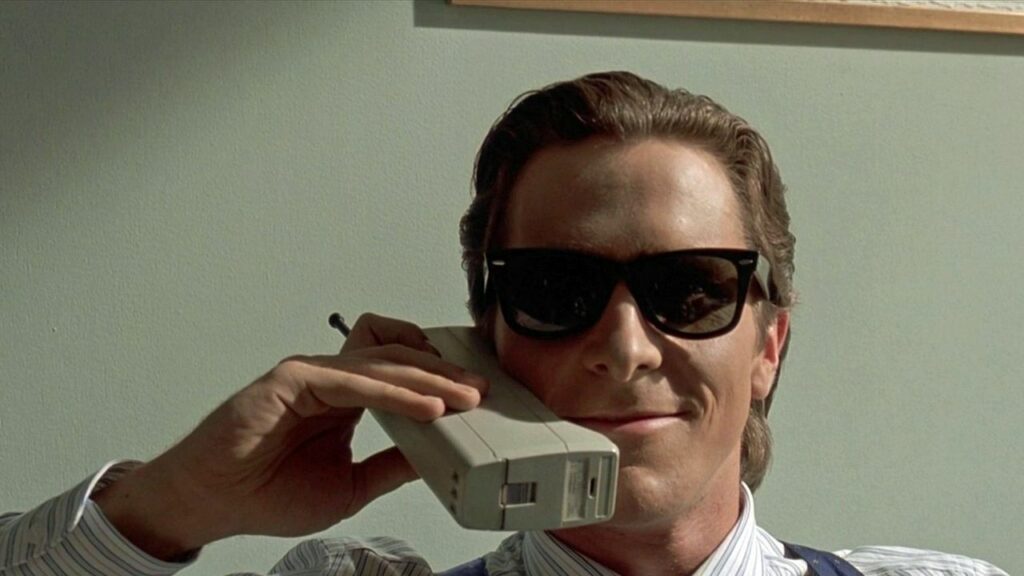
“American Psycho” is a psychological thriller film released in 2000, directed by Mary Harron and based on the novel of the same name by Bret Easton Ellis. The film is set in 1980s New York and follows the life of Patrick Bateman, a wealthy and handsome investment banker who appears to have it all: a successful career, designer clothing, and a luxurious lifestyle.
However, beneath his polished exterior, Bateman harbors a dark and disturbed personality. He becomes increasingly obsessed with materialism, superficiality, and his own desires for violence and control. As the story progresses, Bateman’s violent urges escalate, and he starts committing a series of gruesome murders.
The film blurs the line between reality and Bateman’s delusions, leaving the audience uncertain about whether the murders are truly happening or if they’re a manifestation of his unstable mind. This ambiguity highlights themes of consumerism, narcissism, and the emptiness of the corporate culture prevalent in the 1980s.
“American Psycho” is known for its dark humor, unsettling scenes, and exploration of the darker aspects of the human psyche. The film’s portrayal of Bateman’s descent into madness raises questions about the nature of identity, reality, and the consequences of unchecked materialism and ambition.
Although this isn’t your typical “stock market” style movie and is much different from any other film on this list. The film beautifully captures a wide range of emotions that Bateman displays while seemingly being a successful investment banker who just happens to also be a serial killer. This movie is not only a cult classic but one of the best wall street movies of all times.
3. Wolf of Wall Street
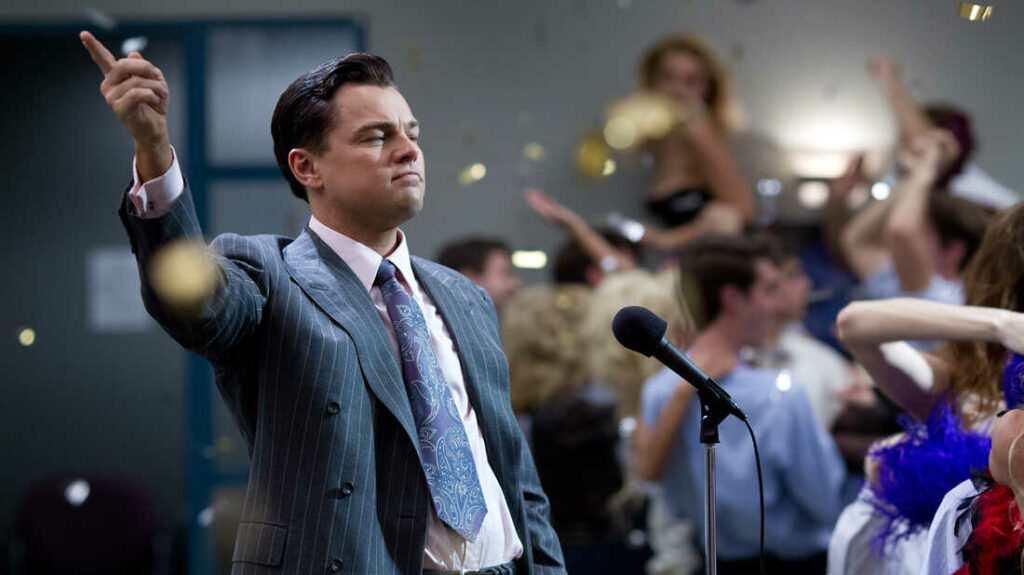
“The Wolf of Wall Street” is a biographical black comedy film released in 2013, directed by Martin Scorsese. The film is based on the memoir of the same name by Jordan Belfort, a real-life stockbroker who engaged in fraudulent and extravagant activities on Wall Street during the late 1980s and 1990s.
The story follows Jordan Belfort, played by Leonardo DiCaprio, as he starts his career as a young and ambitious stockbroker. He establishes his own firm, Stratton Oakmont, which becomes highly successful through aggressive sales tactics and the manipulation of stock prices. Belfort and his team become incredibly wealthy, leading to a lifestyle of excessive partying, drug use, and indulgence.
However, their success is built on illegal activities, including defrauding investors through pump-and-dump schemes. As the FBI starts investigating Belfort’s actions, the excessive and reckless nature of his lifestyle begins to catch up with him. The film portrays the extravagant parties, unethical behavior, and the downfall of Belfort’s empire as he faces legal consequences.
“The Wolf of Wall Street” provides a darkly comedic and often satirical look at the excesses and corruption within the financial industry. It explores themes of greed, moral decay, and the allure of wealth and power. The film showcases the rise and fall of a charismatic yet morally bankrupt figure, shedding light on the darker side of the finance world.
The Wolf of Wall Street is not only one of the best stock market and Wall Street movies of all time, many truly believe this is one of the greatest films ever made. DiCaprio was brilliant in his role depicting Jordan Belfort, someone who is a prolific public speaker and investor to this day.
2. The Big Short
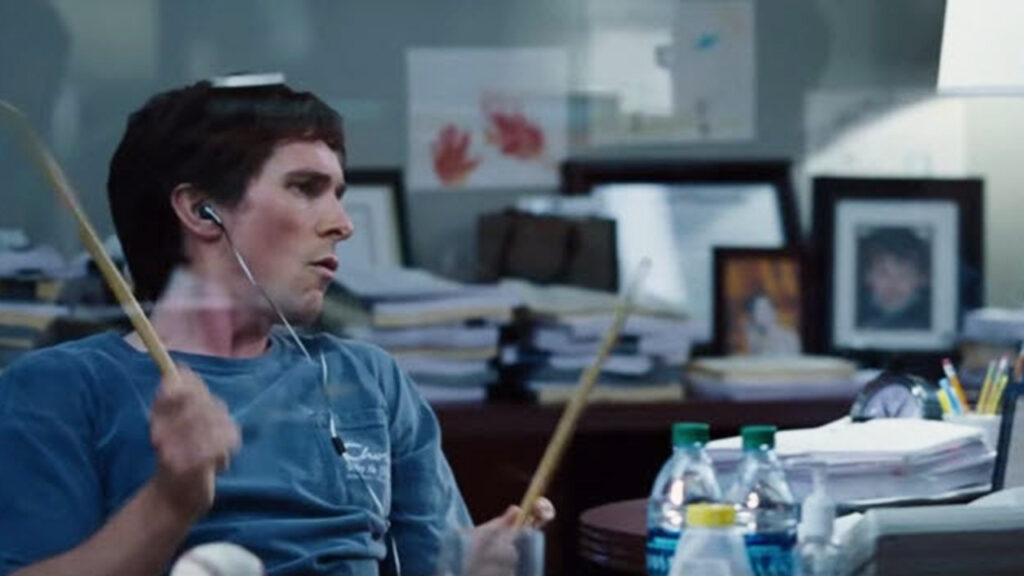
“The Big Short” is a biographical drama film released in 2015, directed by Adam McKay. The film is based on the book of the same name by Michael Lewis and depicts the events leading up to the 2008 financial crisis and the individuals who saw the crisis coming and capitalized on it.
The story revolves around several disparate characters in the financial world who independently recognize the housing bubble and subsequent financial collapse that is imminent. These characters include Michael Burry (played by Christian Bale), a hedge fund manager who bets against the housing market; Mark Baum (played by Steve Carell), a hedge fund manager who is skeptical of the market’s stability; and a pair of young investors, Charlie Geller (played by John Magaro) and Jamie Shipley (played by Finn Wittrock), who team up with a retired banker, Ben Rickert (played by Brad Pitt), to profit from the crisis.
The film delves into complex financial concepts and mechanisms, breaking them down for a general audience to understand. It portrays the disbelief, skepticism, and moral dilemmas faced by these characters as they realize the impending disaster while the financial industry largely ignores the warning signs.
“The Big Short” is a critical look at the financial system, exposing the flaws, greed, and lack of oversight that contributed to the global financial crisis. It’s a mixture of drama and comedy that provides insights into the world of finance, the people who saw the crisis coming, and the impact of their actions on the financial landscape.
The Big Short is one of the best financial movies of all time because it depicts one of the greatest financial collapses of our generation in a unique way. Michael Burry is someone that many investors and traders look up to, much of this is based on the movies excellent depiction of the events from the 2008 financial crisis. This could have been easily ranked number 1 on our list of the best stock market movies of all time.
1. Margin Call
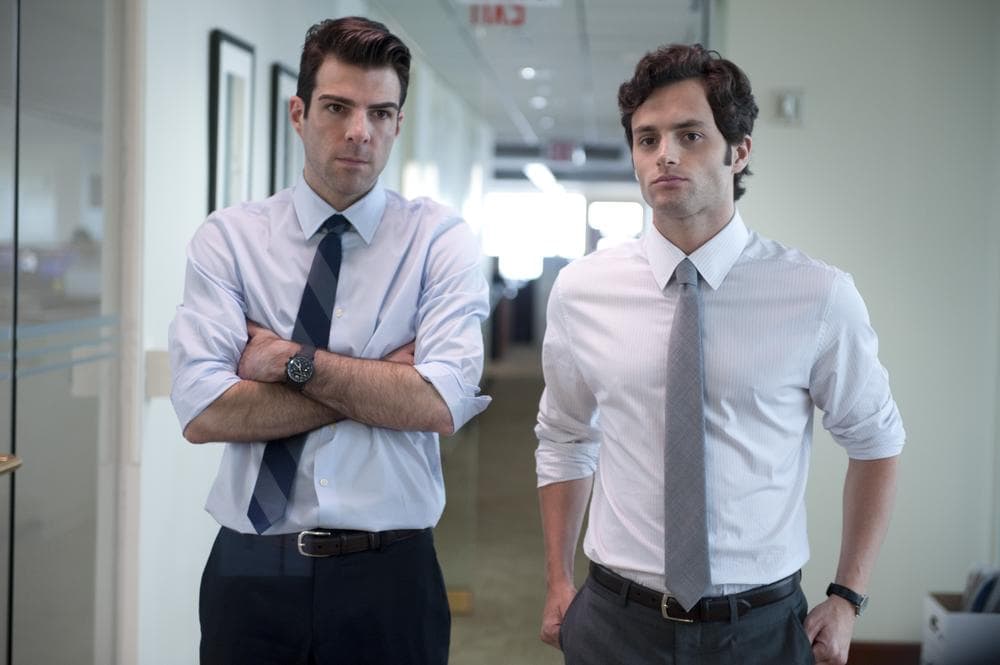
“Margin Call” is a drama film released in 2011, written and directed by J.C. Chandor. The film is set in the early stages of the 2008 financial crisis and provides a snapshot of the events that unfold within a fictional investment bank over a 24-hour period.
The story centers around the employees of the investment bank, led by key characters such as Eric Dale (played by Stanley Tucci), Peter Sullivan (played by Zachary Quinto), and Sam Rogers (played by Kevin Spacey). Eric Dale is laid off as part of company-wide downsizing, and before leaving, he hands a USB drive to Peter Sullivan, urging him to “be careful.” Sullivan discovers that the drive contains complex financial data that reveals the extent of the toxic assets the bank holds and the impending financial disaster.
As the bank’s employees analyze the data and realize the severity of the situation, they face a moral and ethical dilemma. The executives, including Sam Rogers, decide to take actions to minimize the damage and protect the company’s interests. This involves making difficult decisions that will impact not only their clients but also the wider financial system.
“Margin Call” provides a behind-the-scenes look at the inner workings of an investment bank during a critical moment of crisis. The film delves into the pressure, decision-making, and ethical considerations faced by individuals working in the financial industry as they grapple with the consequences of their actions. It highlights the human side of the financial crisis, focusing on the people who had to navigate the complexities of a collapsing market.
This is our favorite stock market movie of all time as it depicts the very real side of Wall Street that the average person will never see. There are real human emotions at play when making stressful decisions, greed, fear and much more. Many view Wall Street as a cold and evil place, this is very much detailed in American Psycho. We believe Margin Call is one of the best financial movies of all time because it does the very best job to relate Wall Street to the average joe.

